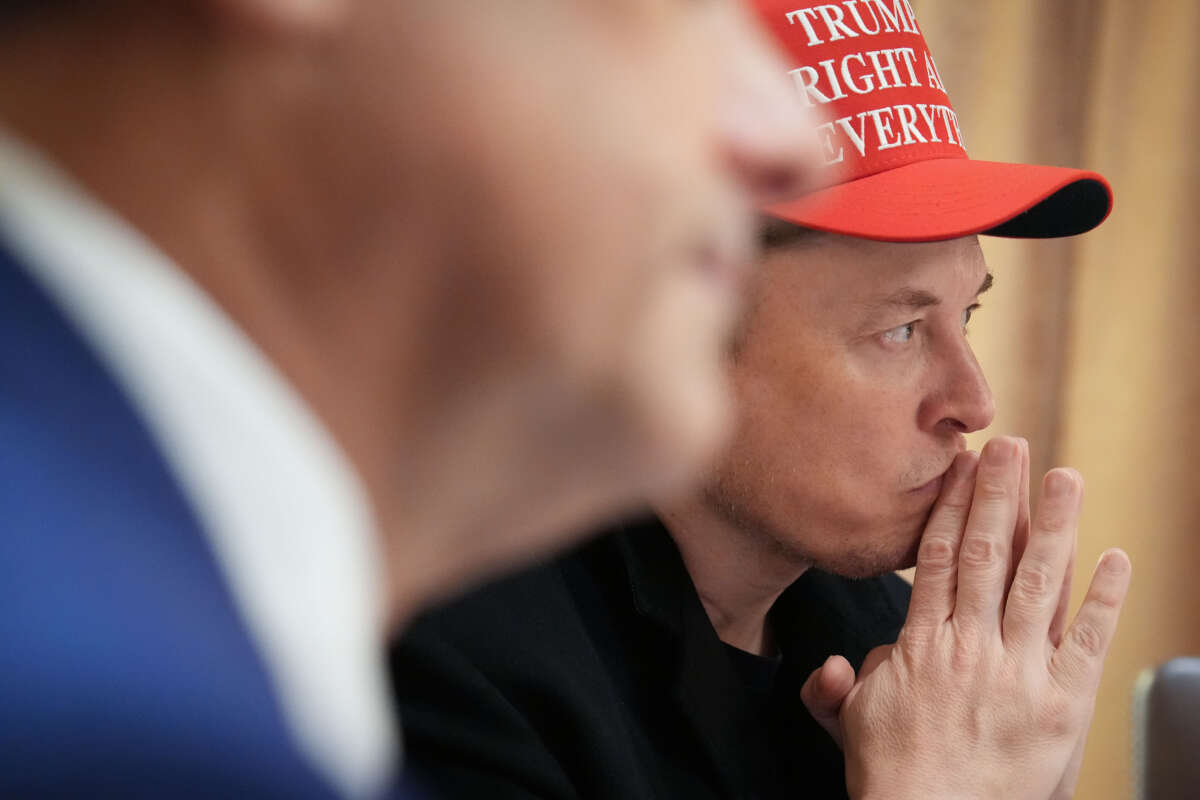Elon Musk, the world’s richest person and the largest donor to President Donald Trump’s 2024 campaign, has poured millions of dollars into Wisconsin’s upcoming Supreme Court race — the latest example of the tech billionaire exerting political power to preserve his own business interests.
Musk is by far the largest single donor in Wisconsin’s current judicial election cycle. The April 1 election will likely play a major role in the future makeup of Congress — and tipping the balance of the court could also result in justices lifting state regulations that affect Musk’s car company, Tesla.
As it currently stands, Wisconsin’s Supreme Court has a slight liberal majority, with four liberal justices and three conservative justices. A liberal justice is ending her current term without seeking reelection, which means that, if conservative Judge Brad Schimel wins over liberal Judge Susan Crawford, the conservative bloc will become the majority.
During a live discussion on his social media site X, Musk told U.S. Sen. Ron Johnson (R-Wisconsin) why he has invested $19 million in the race.
“This is a very important race for many reasons. The most consequential is that [it] will decide how congressional districts are drawn in Wisconsin, which if the other candidate wins, instead of Justice [sic] Schimel, then the Democrats will attempt to redraw the districts and cause Wisconsin to lose two Republican seats,” Musk said.
He further described the race as “a big deal given that the congressional majority is so razor-thin.”
Democrats have acknowledged that the race could help their party on the national stage, as Republicans have long benefited from gerrymandered districts, which last year resulted in a 6-2 majority over Democrats in the state congressional delegation. The Princeton Gerrymandering Project has demonstrated that the district maps are drawn in Republicans’ favor, rating them an “F” in terms of partisan fairness.
After the Wisconsin Supreme Court shifted to a liberal balance a few years ago, it heard cases challenging political maps. While the court eventually ruled in favor of a redraw of state legislative boundaries, it refused to hear a case dealing with the congressional districts, as a newly appointed liberal justice abstained from deciding on the issue due to not being in office when it was first brought up.
Conservative bloc justices on the court said it “likely won’t be long” before there is another challenge to congressional maps.
Wisconsin is a “purple” state, meaning its statewide races are often very close. In the last three presidential races, for example, the elections were decided by 1 percent margins or smaller, with Trump winning in 2024 and 2016 and former President Joe Biden winning in 2020. But in the state legislature, Republicans, benefiting from gerrymandered maps the party drew in 2011 and beyond, had nearly a two-thirds majority. After the state Supreme Court ordered districts to be redrawn, the split in the state legislature became more aligned with the electorate’s purple status, with the GOP having a majority of +9 seats in the state Assembly after the 2024 election rather than their previous margin of +29 seats two years prior.
The Wisconsin Supreme Court could indeed rule on gerrymandering in its next term. It also has the potential to shift the state’s standards on reproductive rights and abortion access, union and workers’ rights, and voting rights — as well as regulatory standards relating to the sale of Tesla vehicles in the state.
Current Wisconsin law forbids car manufacturers from also being able to own dealerships. Tesla, which is owned by Musk, failed to receive a regulatory pass regarding that standard, and the company is currently suing the state over the law, which it says is unconstitutional. The case will undoubtedly make its way to the state Supreme Court.
If Schimel wins the race over Crawford, he would not have to recuse himself from that case, even after benefiting from millions of dollars in indirect donations from Musk. That’s because, under Wisconsin’s judicial code, justices decide for themselves whether they should recuse from cases based on conflicts of interest.
During the recent event with Musk, Johnson, Wisconsin’s senior U.S. senator, recognized how the billionaire’s $19 million in donations to various political action committees and the state Republican Party has helped Schimel. Much of that money was used to fund a smear campaign that has included false or misleading ads against Crawford.
“If we do win [the state Supreme Court election], we have to thank Elon for all the support he’s given this race,” Johnson said this week.
Media that fights fascism
Truthout is funded almost entirely by readers — that’s why we can speak truth to power and cut against the mainstream narrative. But independent journalists at Truthout face mounting political repression under Trump.
We rely on your support to survive McCarthyist censorship. Please make a tax-deductible one-time or monthly donation.
